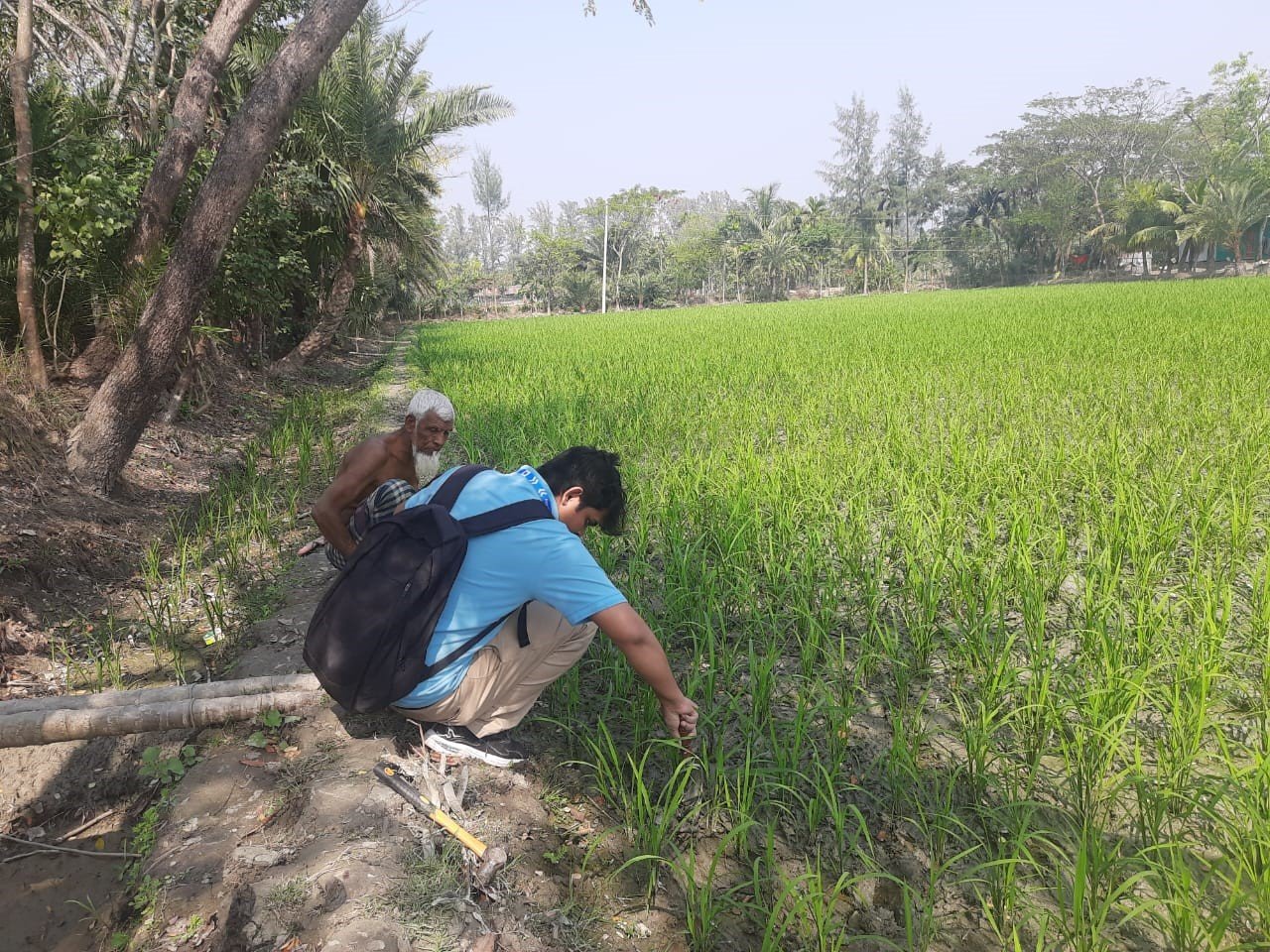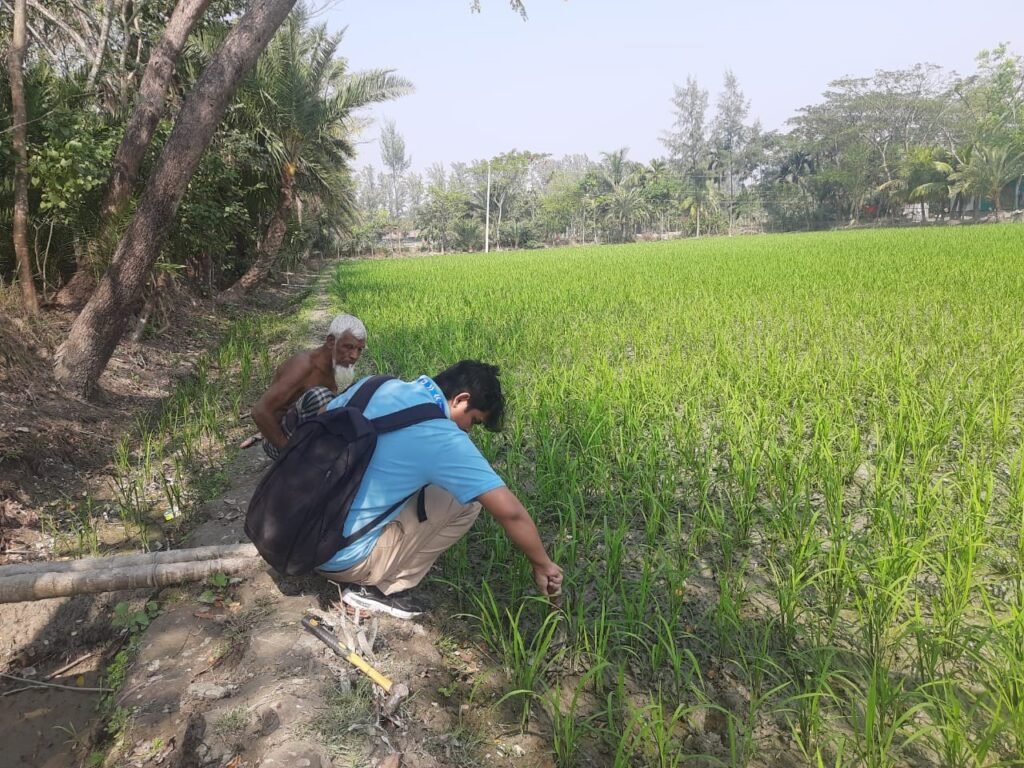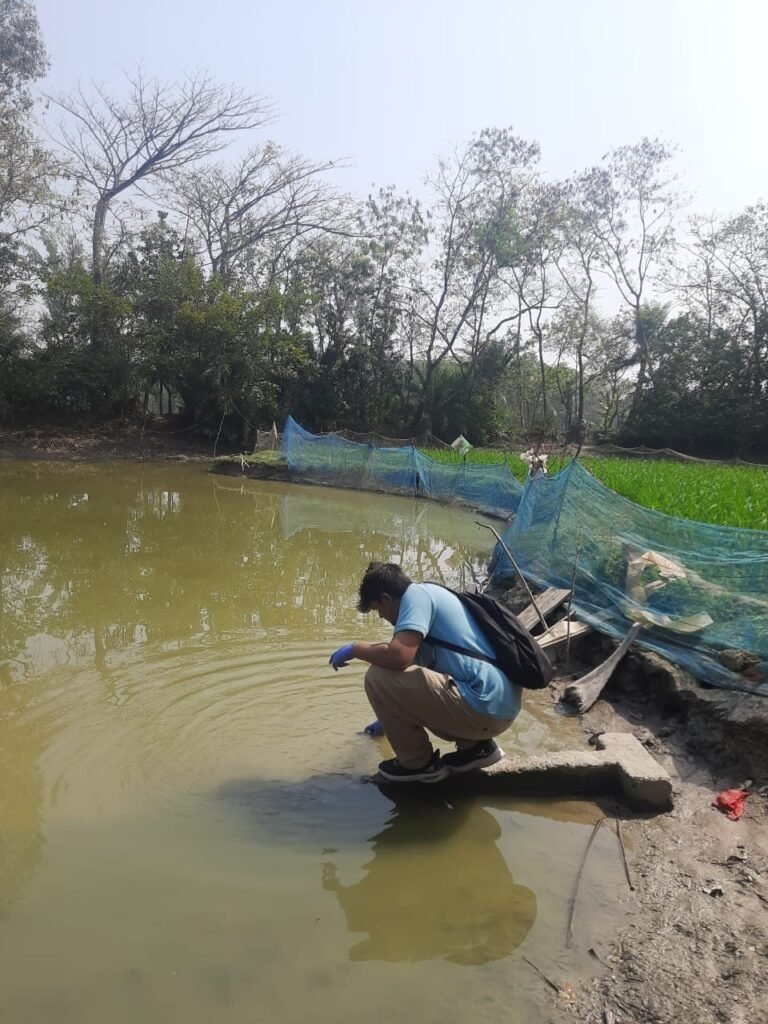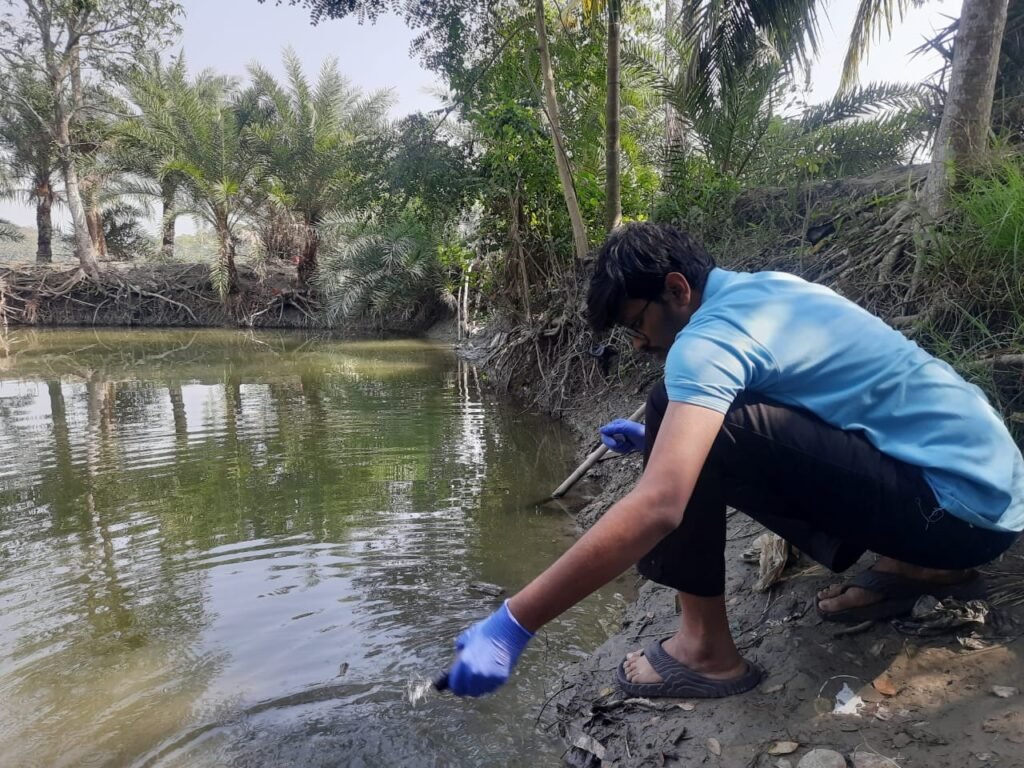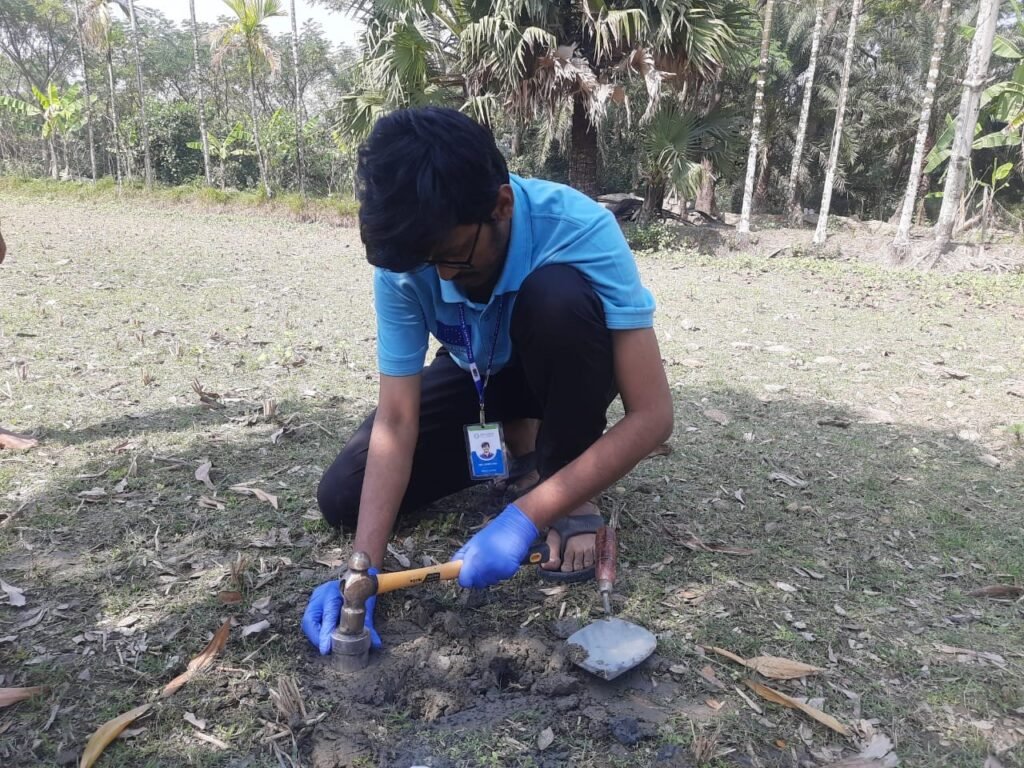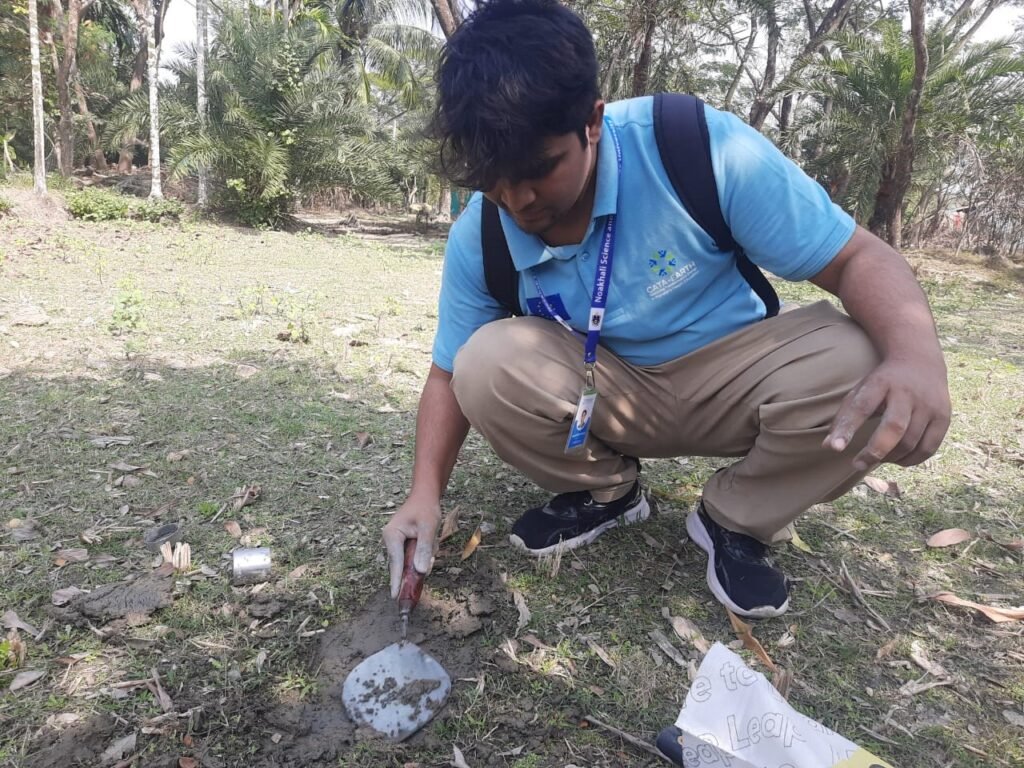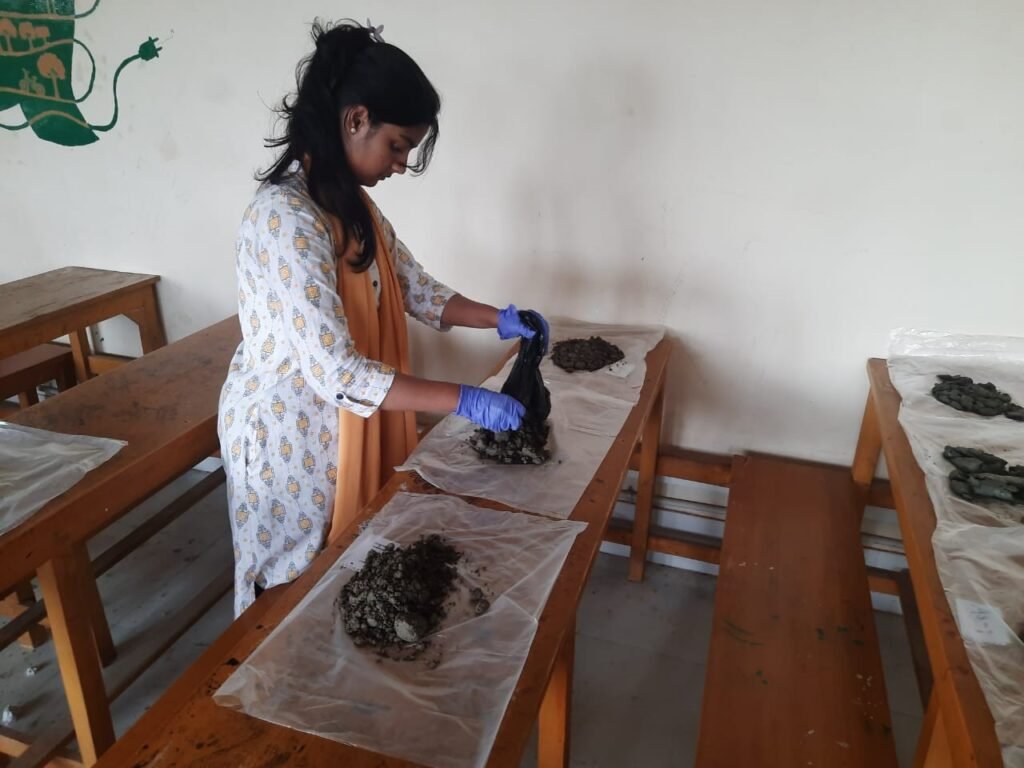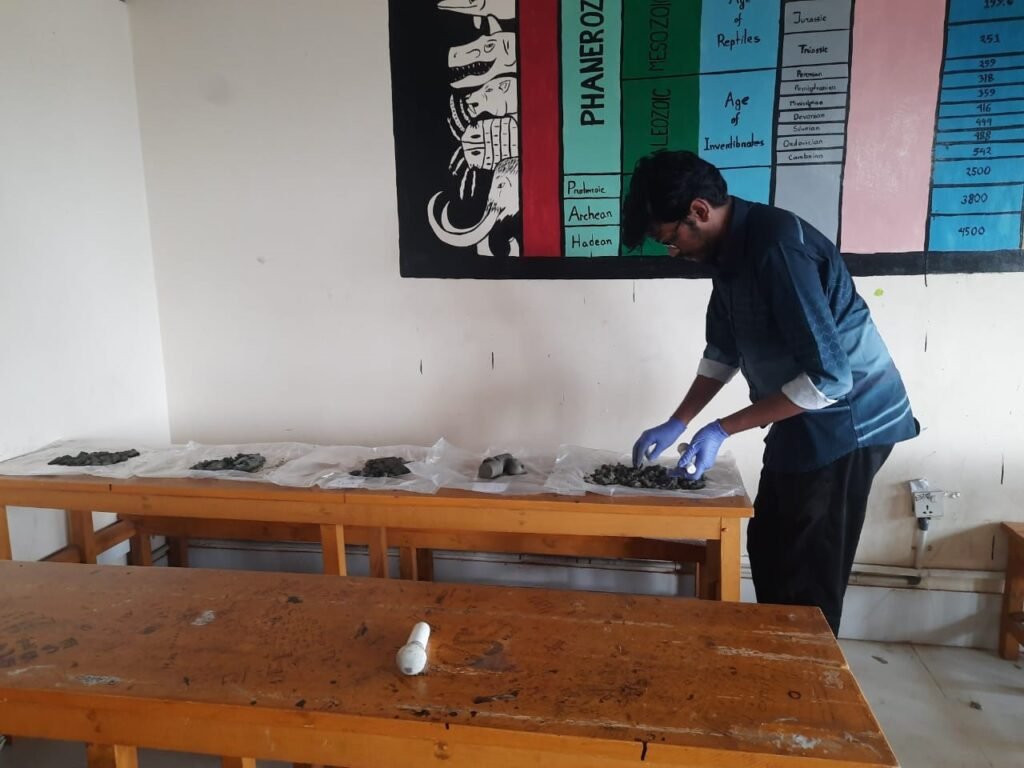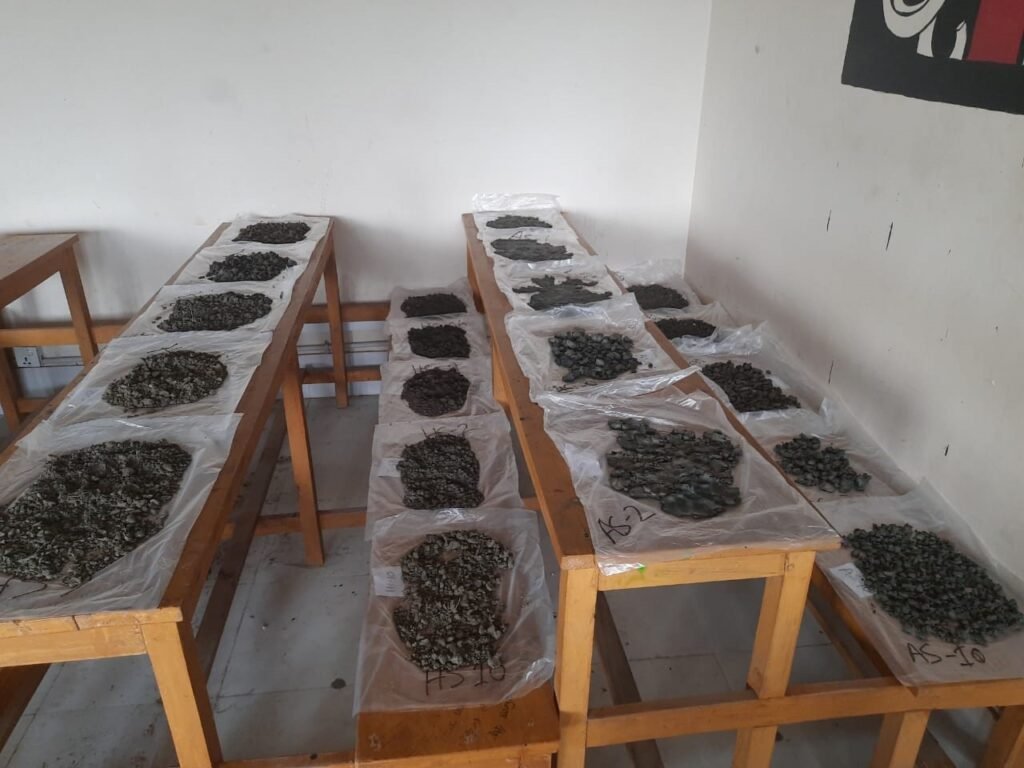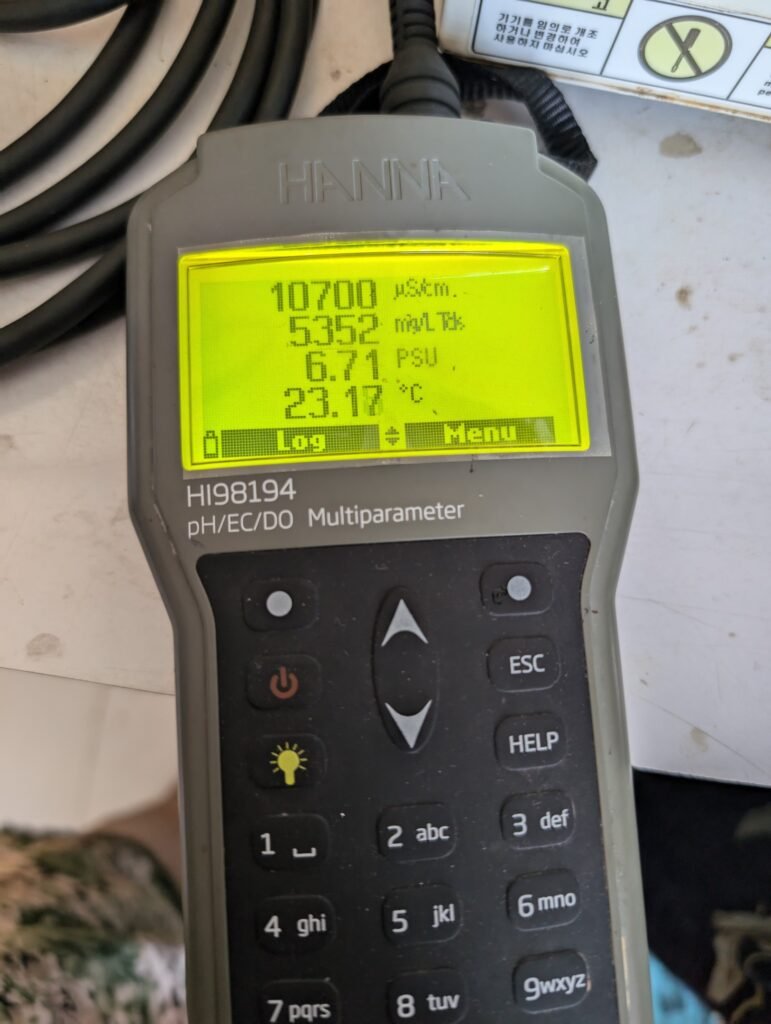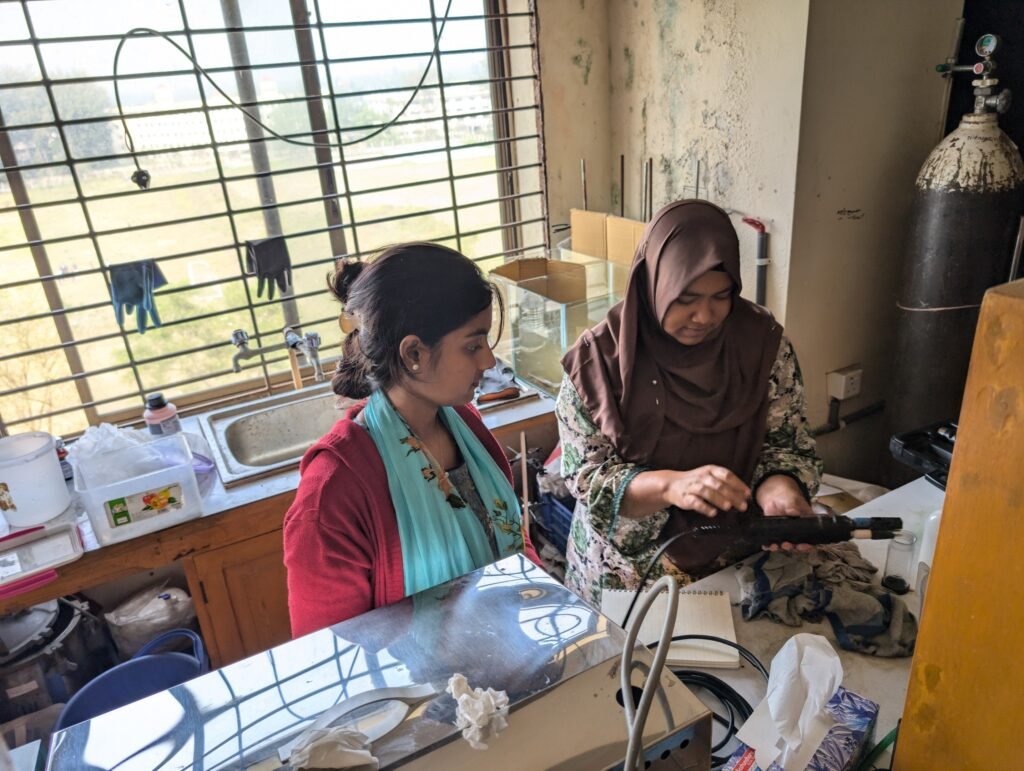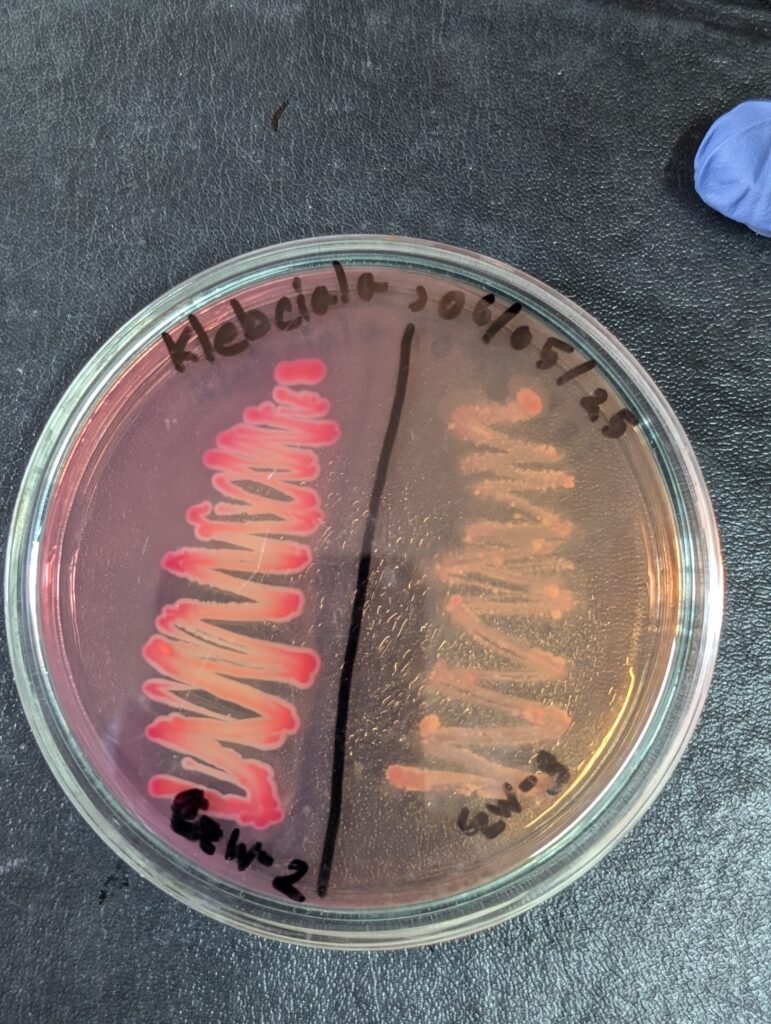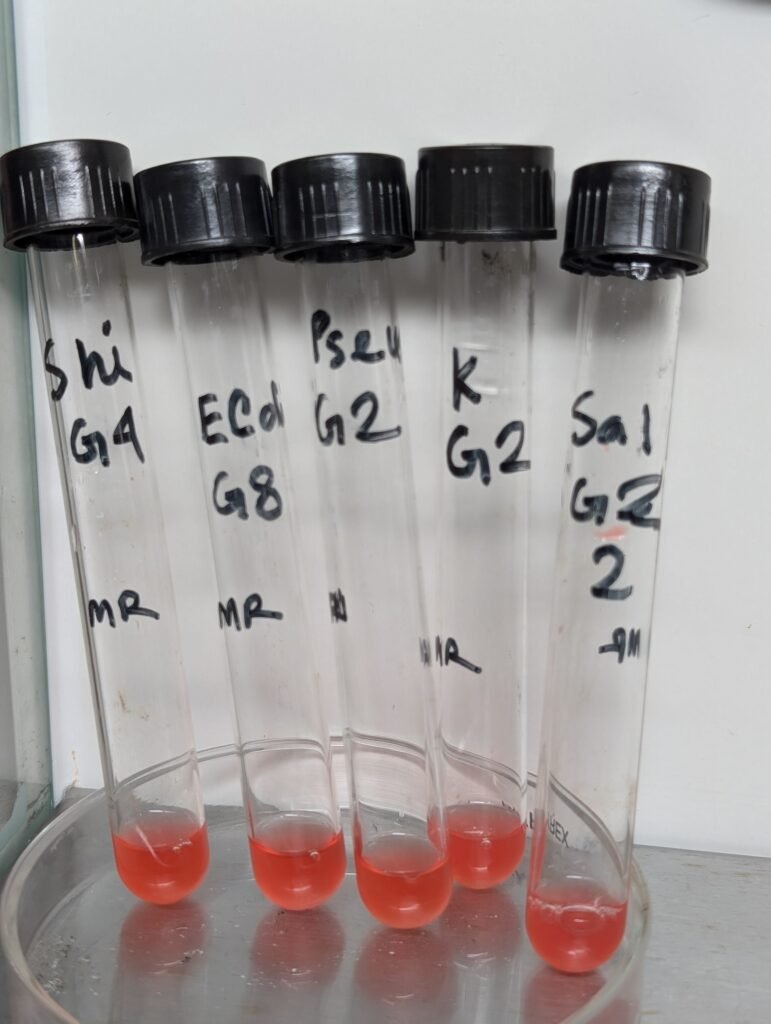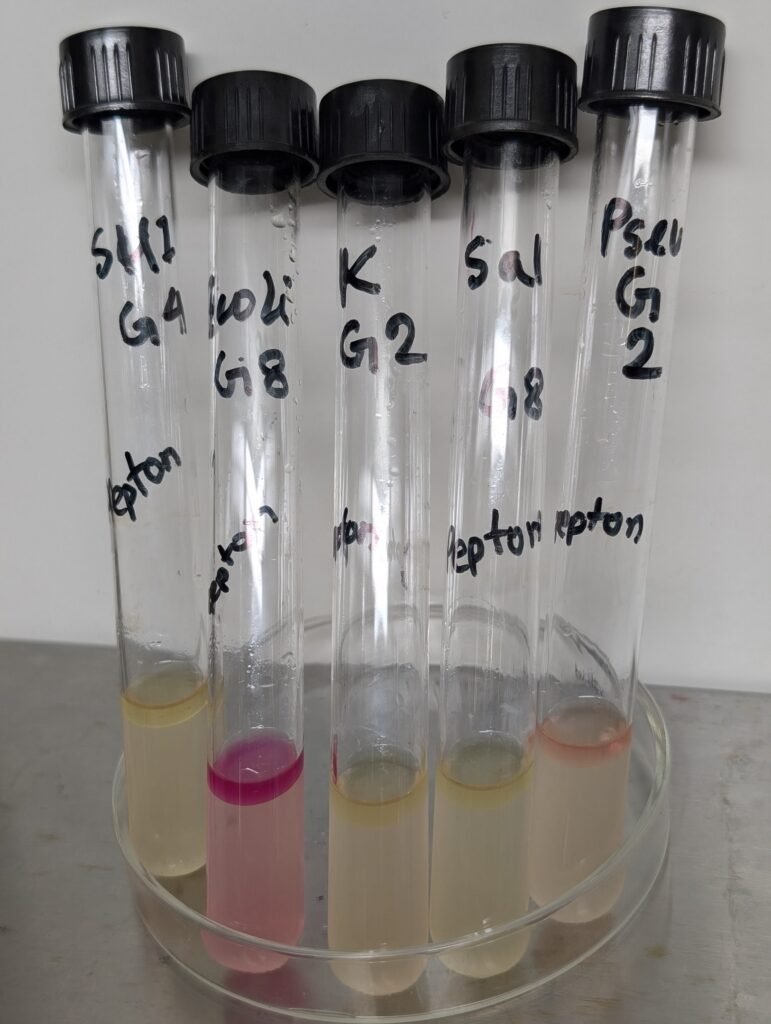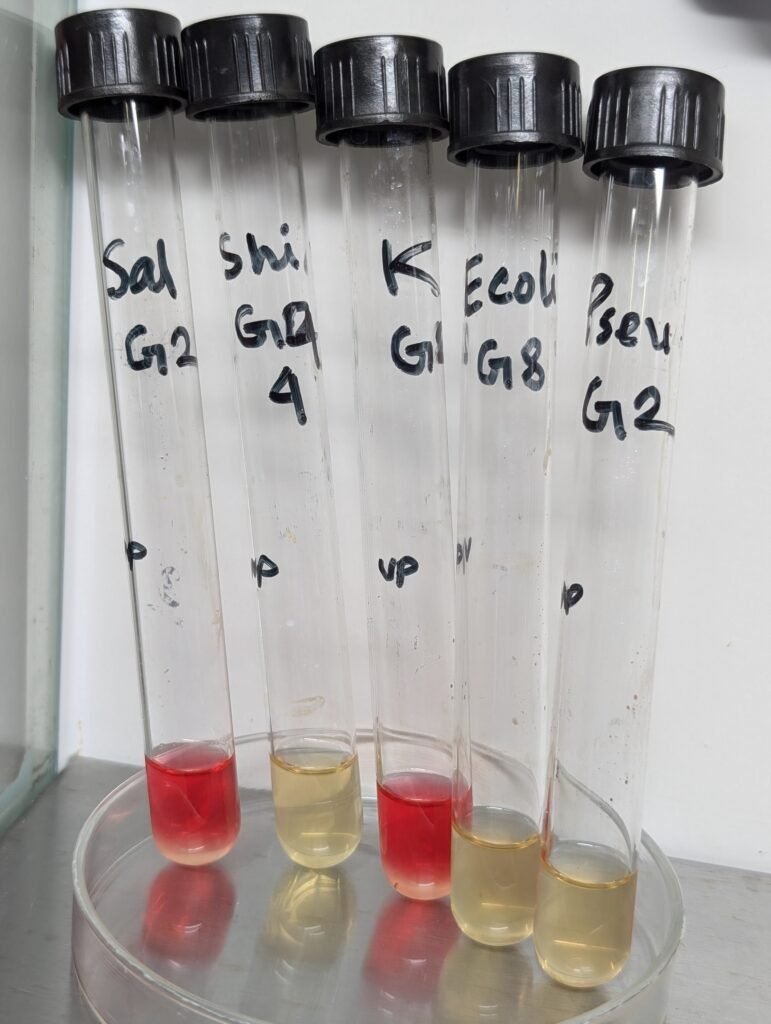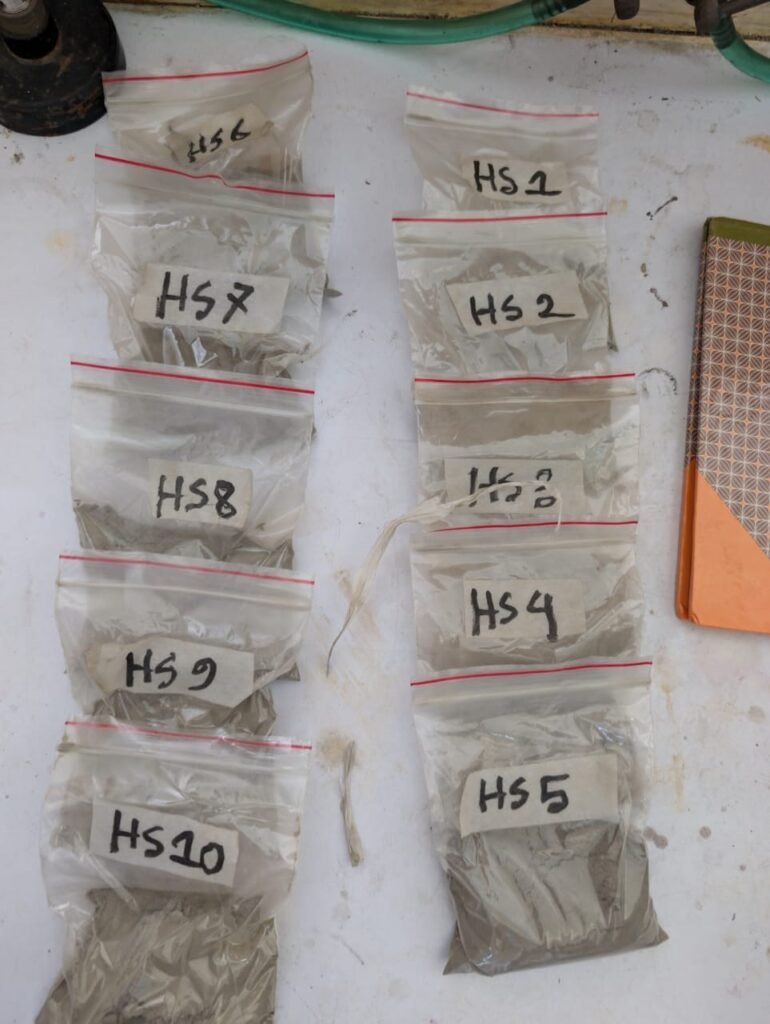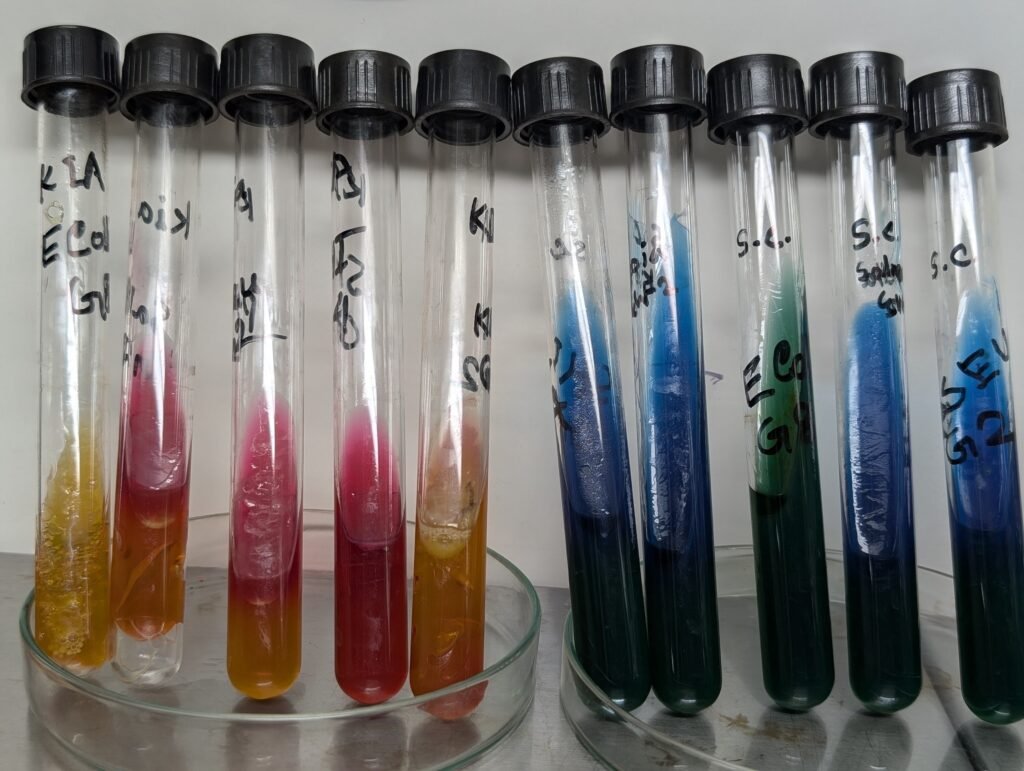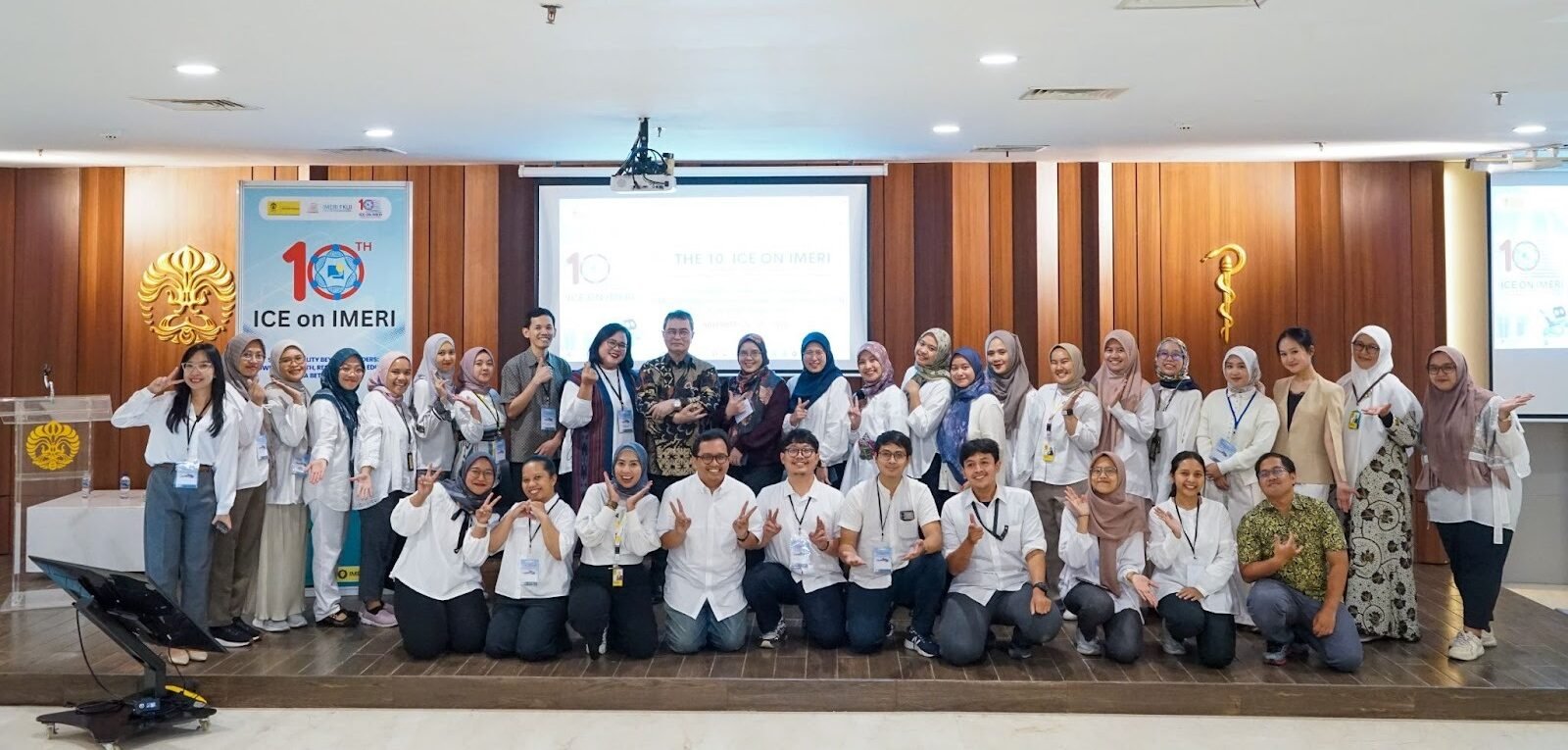As part of the EU-funded CATA Earth project, researchers from Noakhali Science and Technology University (NSTU) have completed an extensive soil and water sampling campaign across four coastal villages in Hatiya upazila, revealing significant environmental and public health concerns.
On February 10, 2025, the NSTU team collected a total of 20 water samples—10 from groundwater sources and 10 from surface water—as well as 20 soil samples, evenly split between agricultural fields and homestead farming plots. The samples were gathered from Tankir Samaj, Centerer Samaj, Foraji Gram, and Shariatpur Gram, ensuring a comprehensive assessment of the region’s environmental conditions. Laboratory analysis was conducted over the following two weeks.
— Photos from the water and soil samples collection day —
Water samples were analyzed at the Environmental Science and Disaster Management (ESDM) Laboratory by NSTU’s CATA Earth interns, while soil tests were carried out at the Soil Resource Development Institute (SRDI), Noakhali.
Preliminary results point to serious concerns. Several groundwater samples revealed salinity levels far exceeding safe limits, posing a direct threat to drinking water and irrigation. Even more concerning, tests confirmed the presence of total coliform bacteria—including Salmonella, E. coli, Shigella, Klebsiella, and Pseudomonas—in drinking water sources, indicating widespread microbial contamination.
— Photos of Water and Soil Samples Preparation —
Local residents voiced alarm over the findings, particularly the salinity in drinking water, which they linked to a rise in health issues such as skin rashes, prolonged menstrual cycles, abdominal pain, diarrhea, and dysentery. “The discovery of coliform bacteria in our drinking water is alarming,” said one community member. “It explains the frequent outbreaks of diarrheal diseases in our villages.”
— Photos of Total Coliform Count and Biochemical Test on The Ground Water (Drinking Water) Samples Collected from Our Study Area —
The NSTU CATA Earth team underscored the urgent need for action. “Our findings will directly inform the CATA Earth project’s educational interventions, equipping local residents with vital knowledge to safeguard their health and environment,” said an NSTU spokesperson.
The CATA Earth initiative remains committed to bridging scientific research and grassroots action, building resilience among Bangladesh’s most climate-vulnerable communities


